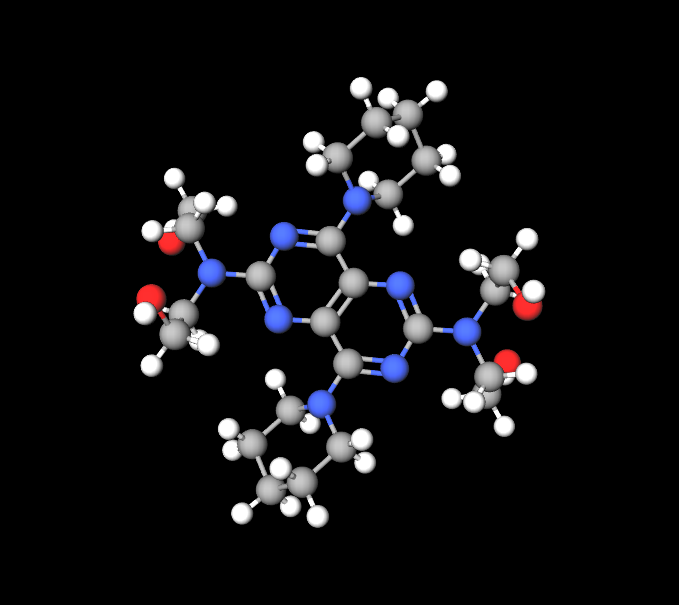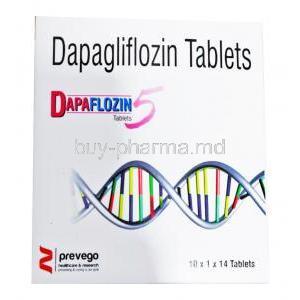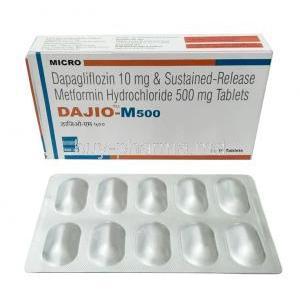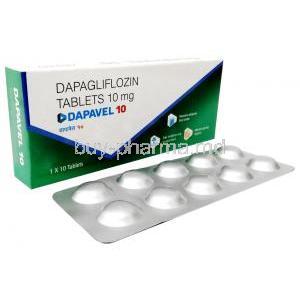Aspirin/ Dipyridamole
- Introduction
- Composition of Aspirin/Dipyridamole
- Therapeutic Uses of Aspirin/Dipyridamole
- Off-Label Uses of Aspirin/Dipyridamole
- Dosage and Administration
- Special Considerations in Administration
- Drug Interactions and Contraindications
- Side Effects and Adverse Reactions
- Important Precautions and Warnings
- Overdose Management
- Handling and Storage
Introduction
The pairing of Aspirin and Dipyridamole marks a step forward in the treatment of heart conditions, especially in preventing strokes. This combination leverages Aspirin's ability to prevent clotting along with Dipyridamole's capacity to widen blood vessels and stop clots from forming, playing a role in safeguarding against strokes.
Overview of Aspirin/Dipyridamole
Aspirin, also known as acetylsalicylic acid, mainly works by blocking the enzyme cyclooxygenase, which is crucial in the production of thromboxane, a substance that promotes platelet clumping. Dipyridamole enhances this action by inhibiting phosphodiesterase, causing a rise in cyclic adenosine monophosphate levels within platelets, decreasing platelet aggregation even more.
Importance and Relevance of the Combination Therapy
This mix is especially effective in preventing ischemic strokes and transient ischemic attacks, providing a significant shield against the risk of recurring cerebrovascular events. The two-fold approach offers a barrier to clot formation, which is crucial for patients with an increased tendency towards thrombosis.
Composition of Aspirin/Dipyridamole
Detailed Description of Active Ingredients
Each pill usually has 200 milligrams of Dipyridamole in a slow-release format and 25 milligrams of Aspirin, keeping a therapeutic level present all day with two daily doses.

Formulation and Pharmaceutical Properties
The combination of Aspirin and Dipyridamole in the formulation aims to enhance the absorption of both substances. Dipyridamole is enclosed within a controlled release matrix for delivery, whereas Aspirin is promptly released, ensuring a blend of rapid and sustained therapeutic outcomes.
Therapeutic Uses of Aspirin/Dipyridamole
Primary Indications for Aspirin/Dipyridamole
-
Prevention of Stroke:
- Aspirin and dipyridamole combination is used to reduce the risk of stroke in people who have had blood clots or a “mini-stroke” (also called a transient ischemic attack or TIA).
- Strokes occur when a blood vessel in the brain is blocked by blood clots.
- This medicine thins the blood and helps prevent blood clots from forming.
- It is only given when there is a high risk that these problems may occur12.
-
Management of Post-Myocardial Infarction Conditions:
- Aspirin and dipyridamole are used to prevent reinfarction (recurrence of heart attack) after a previous myocardial infarction (heart attack).
- By reducing blood clot formation, this combination helps maintain blood flow to the heart muscle and prevent further damage3.
Off-Label Uses of Aspirin/Dipyridamole
Exploring Less Common Applications
-
Treating Specific Types of Vasculitis:
- Vasculitis refers to inflammation of blood vessels.
- Aspirin and dipyridamole may be beneficial in managing certain vasculitis conditions, although this use is not part of the official indications 1.
-
Averting Complications in Individuals with Artificial Heart Valves:
- People with artificial heart valves are at risk of blood clot formation.
- Aspirin and dipyridamole’s antiplatelet properties can help prevent clotting around the artificial valve.
- While this use is not explicitly listed, healthcare providers may consider it based on individual patient needs 1.
Research Insights and Clinical Trials Data
Recent findings indicate that there could be advantages in areas like lowering the chances of cancer and enhancing cognitive abilities. However, extensive testing in controlled clinical trials is needed to confirm these potential uses.
Dosage and Administration
Standard Dosing Guidelines
Adults should take one capsule twice a day, in the morning and evening, with meals to improve absorption and minimize any stomach-related issues.
Adjustments for Specific Populations
Patients with kidney issues or a higher chance of bleeding may require some changes.
Administration Techniques and Best Practices
In order to ensure the results and minimize any negative outcomes, it's important for patients to follow the recommended dosing schedules and seek advice from their healthcare provider if any changes are needed.
Special Considerations in Administration
Administration to Elderly Patients
Elderly individuals might need changes in dosage, considering their well-being, kidney function, and other medications they are taking to lower the chances of bleeding.

Use in Pregnant Women and Nursing Mothers
During pregnancy, it is advisable to consider using Aspirin/Dipyridamole only if the benefits outweigh the risks to the fetus. It is best to avoid its use while breastfeeding as it may pose risks to nursing infants.
Pediatric Administration: Safety and Guidelines
The safety and efficacy of Aspirin/Dipyridamole in children has not been determined. It is recommended that children use this medication under the guidance of a cardiologist.
Drug Interactions and Contraindications
Common and Significant Drug Interactions
Using anticoagulants, medications that prevent blood clotting, and certain antidepressants together can raise the chances of bleeding.
Absolute Contraindications
Individuals who have a sensitivity to any ingredient in the product, those experiencing gastrointestinal bleeding, or individuals with a previous occurrence of asthma triggered by NSAID use should steer clear of this combined treatment.
Potential Food and Drink Interactions
Drinking alcohol could make Aspirin more harmful to the stomach, whereas some natural supplements such as fish oil and green tea might increase the impact of Dipyridamole, raising the chances of bleeding.
Side Effects and Adverse Reactions
Common Side Effects
Aspirin/Dipyridamole may lead to minor side effects that are usually temporary and should be observed.
These may include:
- Stomach and mild gastric discomfort
- Slight headaches
- Feelings of dizziness and fatigue
- Typically, these signs lessen as the body adjusts to the treatment over time.
Serious Adverse Reactions
In some instances, this medicine can lead to reactions that require urgent medical attention.
Some of the ones include:
- severe bleeding in the gastrointestinal tract,
- Allergic reactions like anaphylaxis and
- heart-related issues such as heart attacks or severe irregular heartbeats.
These critical complications call for discontinuation of treatment and careful management procedures.
Reporting Side Effects
Patients are advised to inform their healthcare provider about any reactions they may encounter during their treatment with Aspirin/Dipyridamole. Sharing information helps improve safety monitoring and adds to the database of the drug's potential risks.
Important Precautions and Warnings
Key Safety Information
Using aspirin and dipyridamole requires attention to reduce potential risks. Following the dosage and watching out for any unusual reactions is crucial.
Conditions Requiring Cautious Use
Some factors can increase the risks associated with taking Aspirin/Dipyridamole so it's important to think before starting treatment:
- Patients with severe kidney or liver issues before starting treatment
- People who are prone to bleeding like those, with stomach ulcers
- Individuals who are also taking blood thinners or NSAIDs at the same time
Symptoms That Warrant Medical Attention
It is advisable to seek medical advice if patients experience signs that may suggest significant health concerns, including unusual bleeding or bruising, a sudden and intense headache, alterations in vision, Breathing difficulties, or chest discomfort.
Overdose Management
Symptoms of Overdose
Taking much Aspirin/Dipyridamole can be very dangerous and potentially life-threatening, showing signs, like severe dizziness leading to fainting, difficulty breathing, and experiencing heavy bleeding.
Immediate Actions and Antidotes
In case of an overdose, it's important to seek medical help. Basic support methods and specific antidotes, like activated charcoal and stomach pumping can be used to stop the drugs from being absorbed.
Long-term Management of Overdose Effects
In the run, the goal is to stabilize the patient, keep a close eye on vital signs, and tend to any potential organ harm resulting from the overdose incident.
Handling and Storage
Proper Storage Conditions
Be sure to keep Aspirin/Dipyridamole at room temperature shielded from light and moisture to preserve its effectiveness and avoid deterioration.

Handling Precautions to Maintain Efficacy
Care should be taken to store the medication away from temperatures like heat or freezing. It's essential to keep the packaging intact to shield the medication, from elements.
Disposal and Environmental Concerns
It's really important to dispose of Aspirin/Dipyridamole properly to prevent harm to the environment. Follow the disposal guidelines given by your healthcare provider or local waste management authorities to get rid of any unused or expired medication.





















